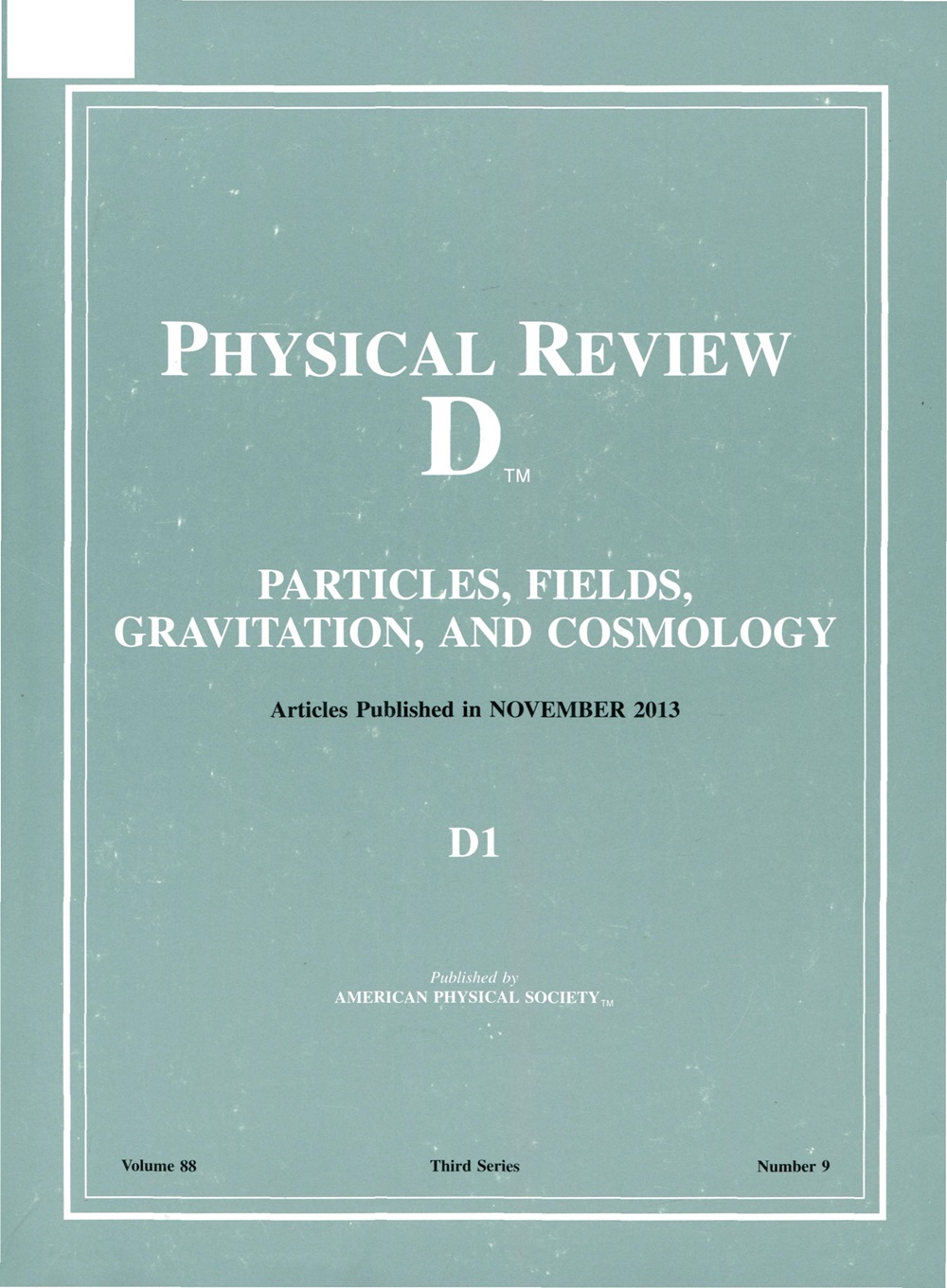Neutrino-nucleus cross section impacts on neutrino oscillation measurements
IF 5
2区 物理与天体物理
Q1 Physics and Astronomy
引用次数: 0
Abstract
The challenges in neutrino-nucleus cross section modeling and its impact on neutrino oscillation experiments are widely recognized. However, a comprehensive and theoretically robust estimation of cross section uncertainties has been lacking, and few studies have quantitatively examined their impact on oscillation measurements. In this work, we evaluate the effect of cross section uncertainties on oscillation parameters using setups inspired by NOvA and DUNE. To characterize these uncertainties, we adopt multiple neutrino-nucleus event generators and simulate a realistic experimental procedure that incorporates near-detector data and near-to-far-detector extrapolation. Our results confirm that cross section uncertainties cannot significantly bias oscillation results in current statistics-dominated experiments like NOvA. However, they could lead to substantial bias for future systematics-dominated experiments like DUNE, even when near-detector data are employed to mitigate uncertainties. These findings underscore the need for further studies on the quantitative impacts of cross section modeling, improved strategies to utilize near-detector data and the PRISM concept, and more robust cross section models to optimize the success of future experiments.中微子核截面对中微子振荡测量的影响
中微子核截面建模的挑战及其对中微子振荡实验的影响已得到广泛认识。然而,对截面不确定性的全面和理论上可靠的估计一直缺乏,并且很少有研究定量地研究它们对振荡测量的影响。在这项工作中,我们利用NOvA和DUNE启发的设置评估了截面不确定性对振荡参数的影响。为了表征这些不确定性,我们采用了多个中微子核事件发生器,并模拟了一个结合近探测器数据和近远探测器外推的现实实验过程。我们的研究结果证实,截面不确定性不能显著地影响当前统计主导实验(如NOvA)的振荡结果。然而,即使采用近探测器数据来减轻不确定性,它们也可能导致未来系统主导实验(如DUNE)的实质性偏差。这些发现强调需要进一步研究截面建模的定量影响,改进利用近探测器数据和PRISM概念的策略,以及更稳健的截面模型,以优化未来实验的成功。2025年由美国物理学会出版
本文章由计算机程序翻译,如有差异,请以英文原文为准。
求助全文
约1分钟内获得全文
求助全文
来源期刊

Physical Review D
物理-天文与天体物理
CiteScore
9.20
自引率
36.00%
发文量
0
审稿时长
2 months
期刊介绍:
Physical Review D (PRD) is a leading journal in elementary particle physics, field theory, gravitation, and cosmology and is one of the top-cited journals in high-energy physics.
PRD covers experimental and theoretical results in all aspects of particle physics, field theory, gravitation and cosmology, including:
Particle physics experiments,
Electroweak interactions,
Strong interactions,
Lattice field theories, lattice QCD,
Beyond the standard model physics,
Phenomenological aspects of field theory, general methods,
Gravity, cosmology, cosmic rays,
Astrophysics and astroparticle physics,
General relativity,
Formal aspects of field theory, field theory in curved space,
String theory, quantum gravity, gauge/gravity duality.
 求助内容:
求助内容: 应助结果提醒方式:
应助结果提醒方式:


